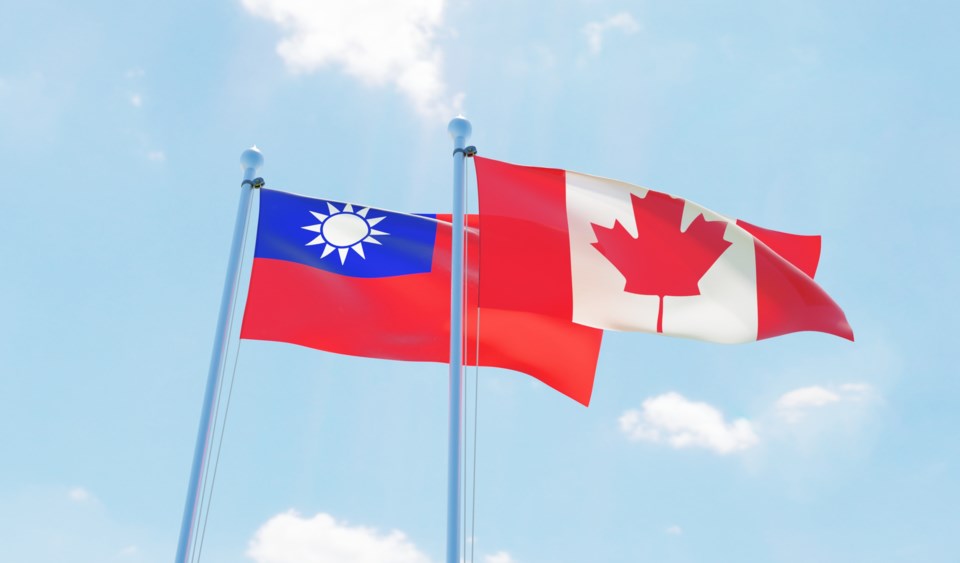Very few of us have the disposition and constitution of a diplomat.
And not all diplomats are even created equally, with the innate grace to be open-minded about uncomfortable news, perseverance through challenges, the composure to couch and be tactful, and the use of language to achieve the optimal objective. Most of us would trip along this path.
In meeting Harry Ho-Jen Tseng, Taiwan’s emissary to Canada, I could not help but steal the great description of a diplomat by American humourist Caskie Stinnett – that a diplomat is someone “who can tell you to go to Hell in such a way that you look forward to the trip.”
Tseng’s nation – and by most measures it is a nation, no matter what Canada officially recognizes – has long lived in geopolitical uncertainty. Only a dozen countries recognize it formally. Tseng’s business card titles him “Representative,” for instance, and not “Ambassador,” and rather than an embassy or a consulate, there is a local Taipei Economic and Cultural Office, because it lives with a half-loaf from our country as Canada respects an official One China policy.
Even more profound is the formidable, if symbolic, military aggression from China near its waters after Taiwan’s newly elected president signalled a firmer approach to the country, and some uncertainty about America’s support as it weighs whether there might be a second Donald Trump administration.
Tseng, diplomatically, plays down the significance of the inaugural address by Lai Ching-te (William Lai) and his emphasis on “sovereignty.” The former deputy foreign minister attributes the speech’s impact to the migration of Hong Kong journalists to Taiwan; they made more of it than what it was, he says.
“He’s speaking to the Taiwanese audience,” he explains. “It was a bit of a surprise that it was such a big story.”
The role of America as the world’s police force was challenged by Trump during his presidency, and it is an open question if the United States under Trump 2.0 would fully benefit Taiwan. While it is true that Trump advanced the relationship – Tseng notes Trump “called a bluff” of China economically, and “you don’t get where we are today” without that – Trump’s erratic rhetoric on military alliances raises concerns should Taiwan ever need assistance.
Tseng is sanguine, “whatever is the result of the election,” indicating the Biden administration continued what Trump started, “and their policy toward China, and consequently toward Taiwan hopefully … will be in parallel, won’t be changing too much.”
Prime Minister Justin Trudeau’s government has shifted considerably in its relationship with China during its term, initially miscalculating about its degree of openness under President Xi Jinping, then turning frosty with the jailing of the so-named Two Michaels in the wake of the apprehension in Vancouver of Huawei executive Meng Wanzhou to face charges in the U.S. Only recently has there been a mild outreach, with our foreign affairs minister travelling to China.
Taiwan is Canada’s 12th largest trading partner and sixth largest in Asia; exports to Taiwan totalled $2.6 billion and imports totalled $9.5 billion in 2022. It is clear that Taiwan is an integral part of the government’s Indo-Pacific Strategy (IPS). It is mentioned extensively in the document, which Tseng calls “a turning point,” and it isn’t noted solely for the economic issues. Roughly half of the world’s container fleet pass through the Taiwan Strait.
Tseng notes how the IPS outlines a clear strategy: “Canada wants to continue to engage Taiwan to emphasize the importance of peace and stability in the Taiwan Strait. Canada opposes any unilateral change in the status quo in the Taiwan Strait.”
While the IPS itself may not endure a change in government, the principle of maintaining the status quo of the strait ought not to change. “I think that will continue. It will continue as the Canadian policy.” It was reported this week that a contingent of Canadian former security and defence officials is heading in the days ahead to Taiwan for discussions to build stronger ties aimed at entrenching Taiwan’s independence from China. The U.S. believes China will try to annex Taiwan in the next few years.
Canada and Taiwan have a Foreign Promotion and Protection Agreement (FIPA) that could be used as the framework for a bilateral free trade deal. These remain early days on that, though.
Conservative Leader Pierre Poilievre hasn’t outlined much about foreign policy, but Tseng has always reached out across the aisles to the political opposition for discussions and treks to Taiwan.
“I have friends in all these parties,” he says. Spoken, unruffled, as a diplomat.
Kirk LaPointe is a Glacier Media columnist with an extensive background in journalism.



